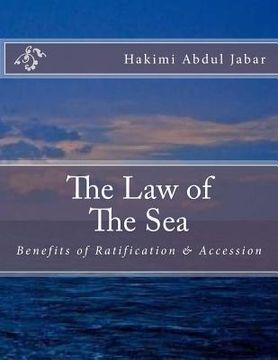Reseña del libro "The Law of The Sea: Benefits of Ratification & Accession (en Inglés)"
Author's Foreword Oceans are key to sustaining life on the planet. They cover more than 70% of the Earth and they constitute one of the most essential bases for human life, either because of the richness of their living resources and unlimited energy sources, or simply because, by connecting us all, oceans offer an essential means of transportation for people and trade. Marine biodiversity among other things, produces a third of the oxygen we breathe, moderates global climate conditions, and provides valuable source of protein for human consumption. Furthermore, the potential energy output derived from oceans well exceeds current and future human energy needs. Finally, 80% of the volume of global trade is seaborne; representing 70% of its value, which is expected to increase by 36% by 2020. The year 2017 marks the 35th anniversary of the opening for signature of the 1982 United Nations Convention on the Law of the Sea ("UNCLOS" or "the Convention"), which, as at 30 August 2017, has 168 parties, including the European Union. UNCLOS was opened for signature at Montego Bay, Jamaica, on 10 December 1982 and entered into force on 16 November 1994. One of its implementing agreements, namely the 1994 Agreement relating to the implementation of Part XI of UNCLOS, was adopted on 28 July 1994 and entered into force on 28 July 1996. The other implementing agreement, the 1995 United Nations Fish Stocks Agreement ("Fish Stocks Agreement") was opened for signature on 4 December 1995 and entered into force on 11 December 2001. Together, these three instruments provide a comprehensive legal regime for all activities in the oceans and seas. The regime for oceans and seas established by UNCLOS deals with a wide range of issues on ocean affairs and recognizes that the problems of ocean space are closely interrelated and need to be considered as a whole. Participation in UNCLOS is open to all States, including States that are not Members of the United Nations, such as the Holy See, the Cook Islands, and Niue, as well as to entities such as the European Union. The opening for signature of UNCLOS marked the culmination of many years of intense negotiations, particularly dating from 1958 when the First United Nations Conference on the Law of the Sea was convened. This book pertains to the benefits of the ratification and accession of the United Nations Convention on the Law of the Sea (UNCLOS/LOS), especially from the dispute settlement perspectives in dealing with various issues relating to the maintenance of international peace and security. The United Nations Convention on the Law of the Sea (UNCLOS/LOS) addresses the various areas and uses of the world's oceans, which cover 70 percent of the Earth's surface. The Convention was concluded in 1982 to replace a group of 1958 treaties that were out of date and less favourable to America's economy and security. LOS came into force in 1994, and to date, 157 signatories and 168 parties including the European Union that have joined the treaty. LOS Functions Its primary functions are to define maritime zones, protect the marine environment, preserve freedom of navigation, allocate rights to resources, and establish certainty necessary guidelines for businesses that depend on the sea for various purposes. Undoubtedly, there are numerous benefits derived from the ratification and accession of the UNCLOS/LOS.

